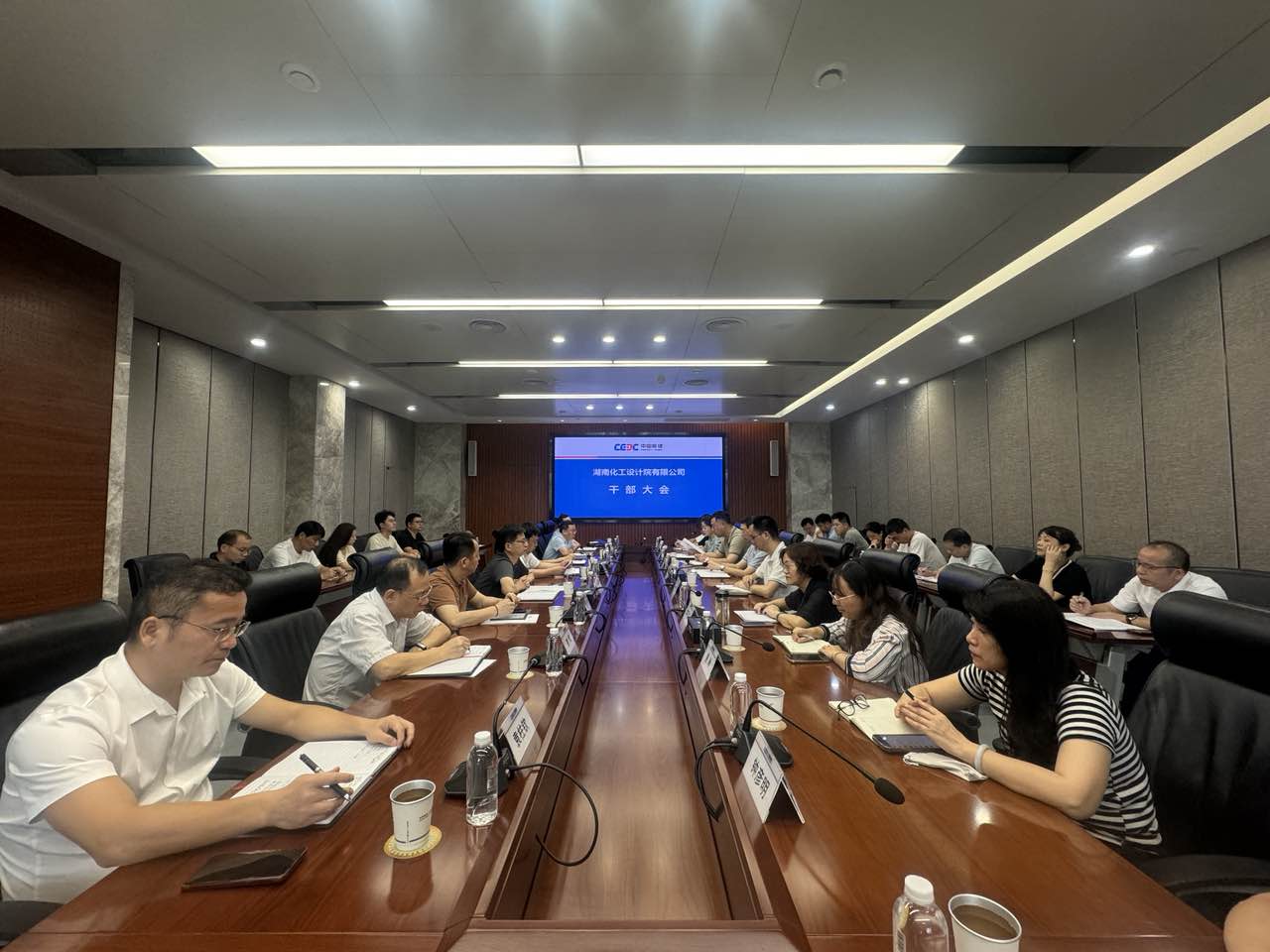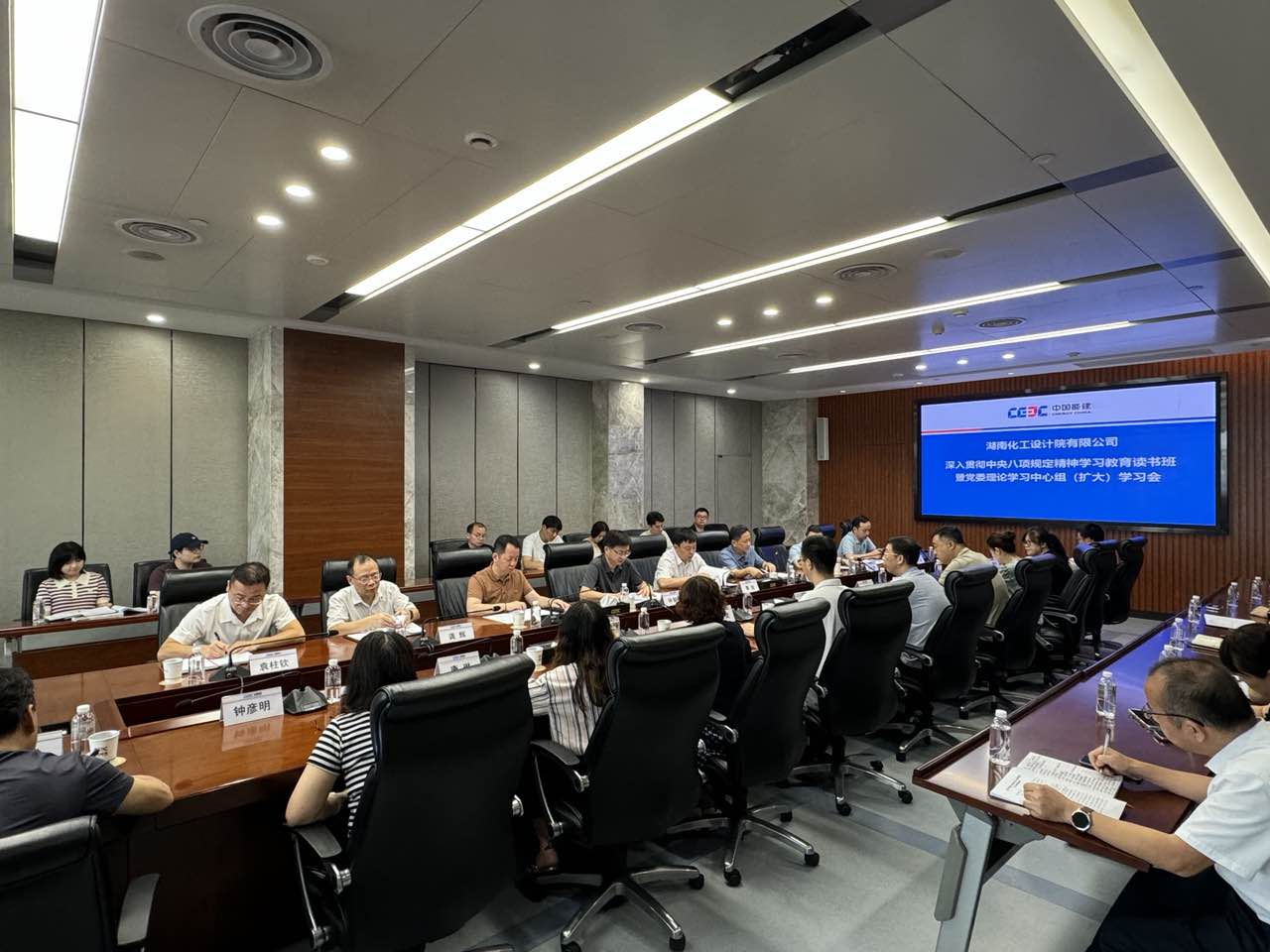
The School of Chemical Engineering held a cadre meeting, an in-depth study session to implement the Central Eight-Point Regulation, and a Party Committee theoretical study center group (expanded) study session.
On June 27, the Chemical Engineering Institute held a cadre meeting, a study session to thoroughly implement the Central Eight-Point Regulation, and an expanded study session of the Party Committee's theoretical learning center group. The institute's leadership team, heads of various departments, departmental assistants, and professional group leaders attended the meeting, which was presided over by Executive General Manager Cai Rui.
Release time:
2025-06-27 17:06
Source:
General Affairs Department
Responsibility:
Huang Yuwei
On June 27, the Chemical Engineering Institute held a Cadre Conference and Study Session on the In-depth Implementation of the Central Eight-Point Regulation, as well as a Party Committee Theoretical Study Center Group (Expanded) Learning Session. The Chemical Engineering Institute's leadership team, heads of various departments, departmental assistants, and professional group leaders attended the meeting, which was presided over by Executive General Manager Cai Rui.

At the cadre conference, the head of the Human Resources Department announced the appointments and removals of personnel, and representatives of newly appointed cadres made statements. Party Secretary and General Manager Lin Zhiyong congratulated the newly appointed cadres and briefly described the background of the cadre adjustments and adaptive organizational adjustments. He also made four requests of the various departments and cadres: First, to prioritize politics and accelerate the professionalization and rejuvenation of the Chemical Engineering Institute's cadre team; second, to clarify the role positioning of cadres, emphasizing the importance of pressure-testing and personal ability improvement; third, to require various departments to boldly use young backbones and clarify their training paths; and fourth, to deploy special work for the newly adjusted organization, to ensure a smooth transition, and for newly appointed cadres to innovate the assessment mechanism.

At the second phase of the study session on the in-depth implementation of the Central Eight-Point Regulation and the Party Committee Theoretical Study Center Group (Expanded) learning session, company leaders studied General Secretary Xi Jinping's important speeches and instructions on the in-depth implementation of the Central Eight-Point Regulation, as well as documents such as the Central Eight-Point Regulation and its implementation rules. Disciplinary Committee Secretary Yang Fangwen emphasized that cadres must always maintain a clear head, that Party members and cadres must take the lead, uphold the bottom line, and not cross the red line. He also made three requests: First, to raise the political standing, recognize the requirements of the situation, and deeply understand the determination and deployment of the Party Central Committee in promoting clean governance; second, to strictly abide by discipline and rules, to build a moral bottom line of "rejecting corruption," and to maintain high consistency in thought, politics, and action with the Party Central Committee; and third, to strengthen supervision and restraint, to correctly treat the supervision of the organization and the masses, to strengthen self-supervision, to manage and develop the enterprise with integrity and honesty, and to promote high-quality development of the enterprise.
Party Secretary and General Manager Lin Zhiyong concluded his speech by pointing out the need to meticulously implement the regulations to ensure high-quality learning, effective investigation, and fruitful reforms. He proposed three "continuous" requirements: First, to continuously expand the breadth of learning, paying attention to connecting with General Secretary Xi Jinping's latest speeches and implementing the responsibility of comprehensive and strict governance of the Party; second, to continuously increase the intensity of investigations, adhering to high standards and strict requirements, and truly finding problems; and third, to continuously improve the depth of reforms, promoting the Chemical Engineering Institute's management "second revolution" and high-quality leapfrog development.
Latest information
 湘公网安备 43011102001763号
湘公网安备 43011102001763号